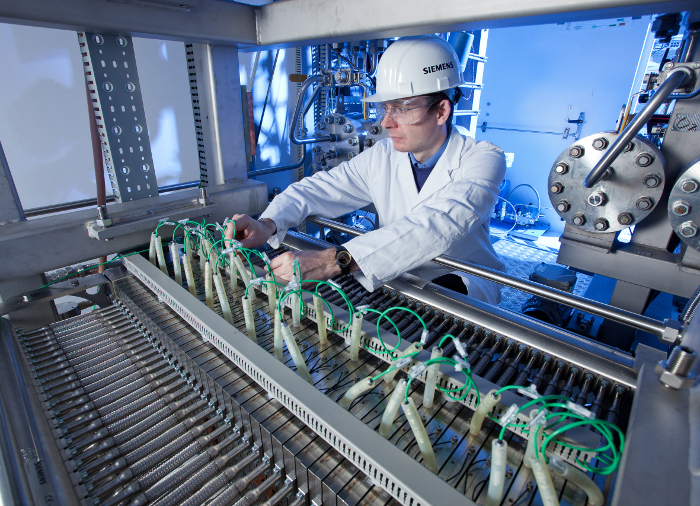Australia is keen to corner the hydrogen market. As a nation, Australia has excessive natural resources of wind and solar that will generate the green hydrogen set to become the fuel of the century. Australia also has non-renewable resources that can generate hydrogen of the grey and blue variety, however, the sheer cost advantage of solar and wind is expected to out-compete grey and blue hydrogen by as soon as 2030.
This is why Goldman Sachs has called green hydrogen a “once-in-a-generation opportunity” and estimated that green hydrogen alone (not including grey and blue) “could give rise to a €10 trillion addressable market globally by 2050 for the utility industry alone.”
So it is no surprise that National Energy Resources Australia (NERA), an industry-led not-for-profit organization set up in 2015 as part of the federal government’s Industry Growth Centre initiative, is investing in an Australian-wide network of regional hydrogen technology clusters. According to a statement from NERA: “Technology Clusters are geographic concentrations of interconnected businesses and organizations in a particular field, that both collaborate and compete to increase productivity and innovation.”
NERA is investing an initial $1.75 million in 13 clusters of industry experts, universities, energy companies, renewables hubs and development committees across all states and territories that will work together to establish Australia’s global identity in the hydrogen economy and foster billions of dollars in growth.
According to the 2019 National Hydrogen Strategy: “A key element of Australia’s approach will be to create hydrogen hubs – clusters of large-scale demand.”
Combined, the various regional clusters form a national cluster that will operate as a virtual network spearheaded by NERA. The goal of the network is to establish Australian hydrogen technology and expertise as a recognized global brand. Which is to say that the goal is to establish as a global norm that if you want to know about hydrogen, look to Australia.
Moreover, these hydrogen clusters will also help in the development of hydrogen supply chains, deployment, identify developmental missteps, and the commercialization of new hydrogen tech.
NERA CEO Miranda Taylor said that these 13 regional clusters are a crucial step in building the skills, capacities, and commercialization opportunities necessary to unlock Australia’s enormous potential to create a globally competitive hydrogen industry that, according to a 2019 Deloitte report, could increase Australia’s GDP up to $26 billion.
“Today marks a great step forward in Australia’s capability in developing hydrogen technologies,” said Taylor. “These regional clusters, all of which have the support of their state and territory governments, have been established around key, existing hydrogen projects and technology supply chains in strategic locations that have a demonstrated capacity to support them.”
The announcement is a direct result of action accorded in the National Hydrogen Strategy which instructed NERA to “support small and medium enterprises (SMEs) to take advantage of opportunities in the hydrogen industry by forming an industry-led hydrogen cluster…This will maximize economic benefits by ensuring Australian companies are well placed to supply new technology, products and services to Australia’s hydrogen industry and export markets.”
According to Taylor this national cluster “will ensure long-term local cohesion and sustainable capability across the emerging hydrogen value chain.”
The clusters are as follows:

This content is protected by copyright and may not be reused. If you want to cooperate with us and would like to reuse some of our content, please contact: editors@pv-magazine.com.




By submitting this form you agree to pv magazine using your data for the purposes of publishing your comment.
Your personal data will only be disclosed or otherwise transmitted to third parties for the purposes of spam filtering or if this is necessary for technical maintenance of the website. Any other transfer to third parties will not take place unless this is justified on the basis of applicable data protection regulations or if pv magazine is legally obliged to do so.
You may revoke this consent at any time with effect for the future, in which case your personal data will be deleted immediately. Otherwise, your data will be deleted if pv magazine has processed your request or the purpose of data storage is fulfilled.
Further information on data privacy can be found in our Data Protection Policy.